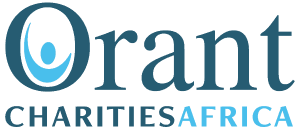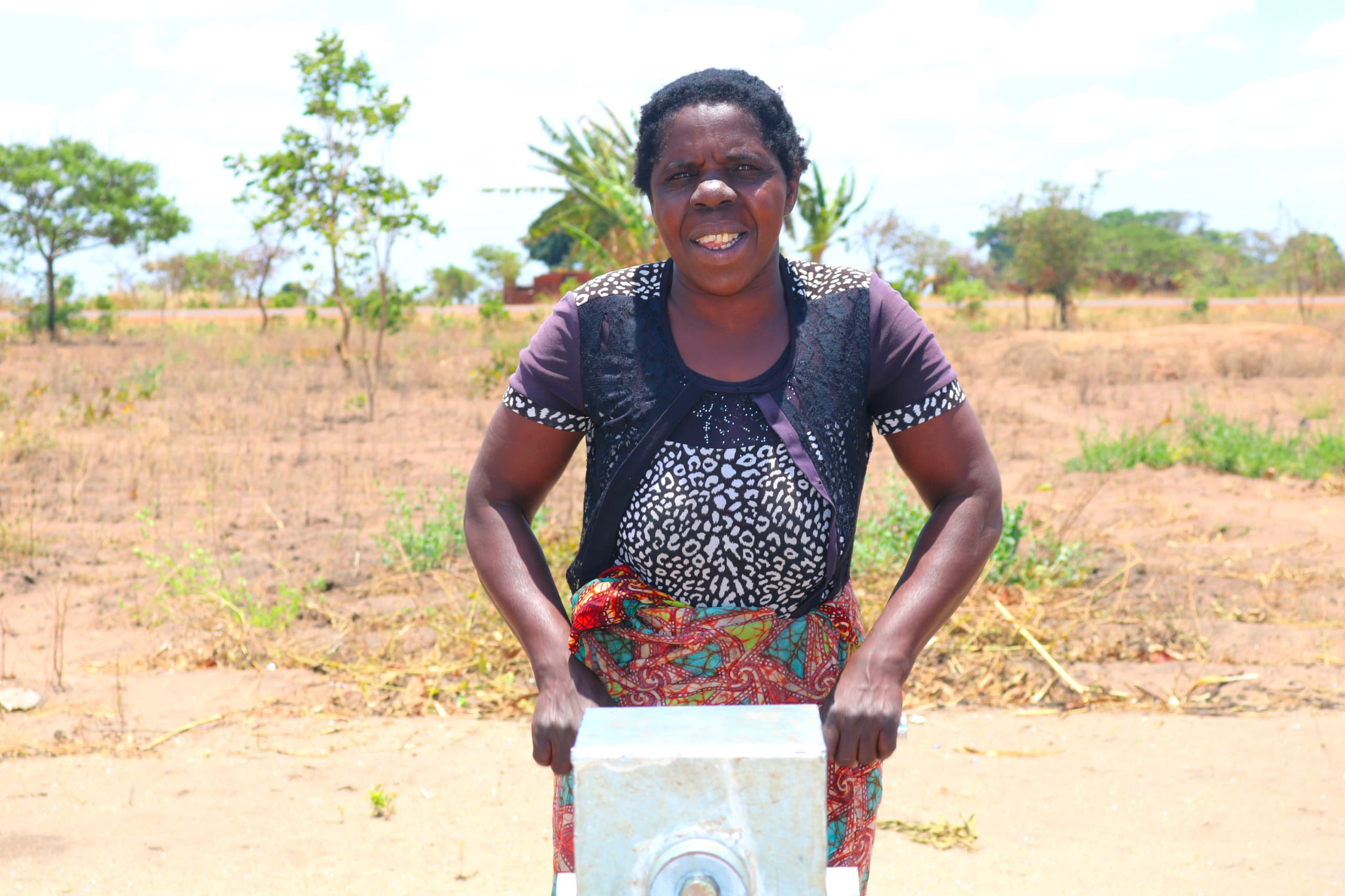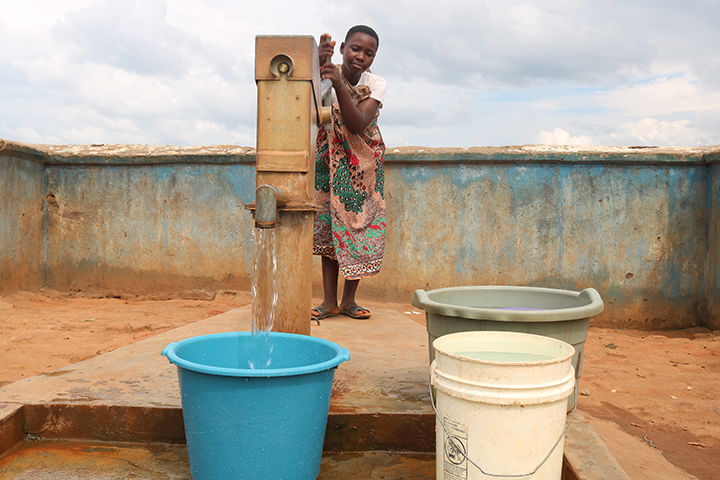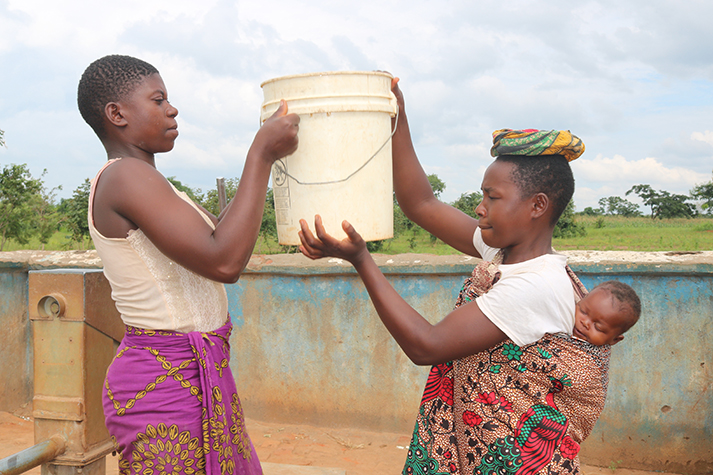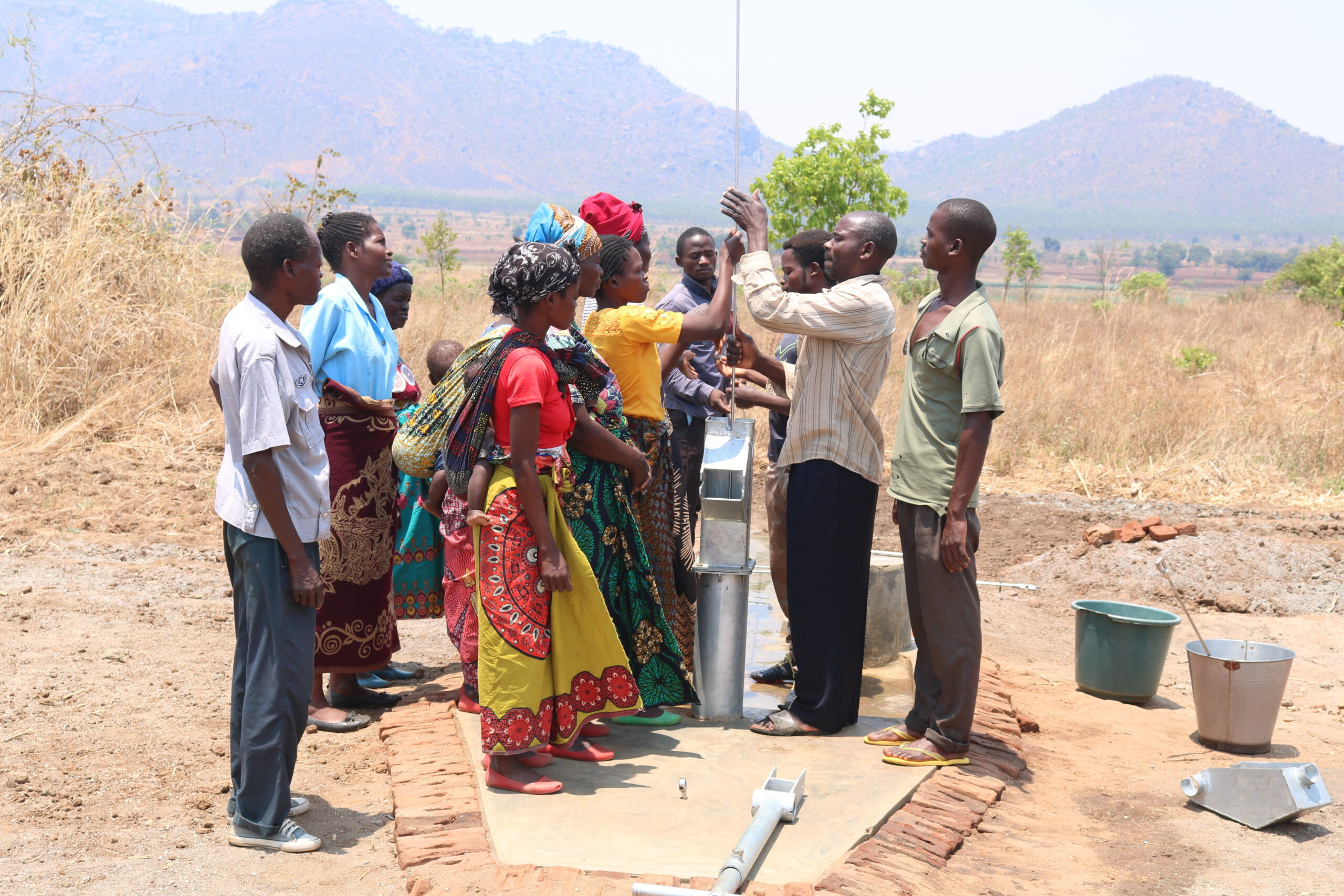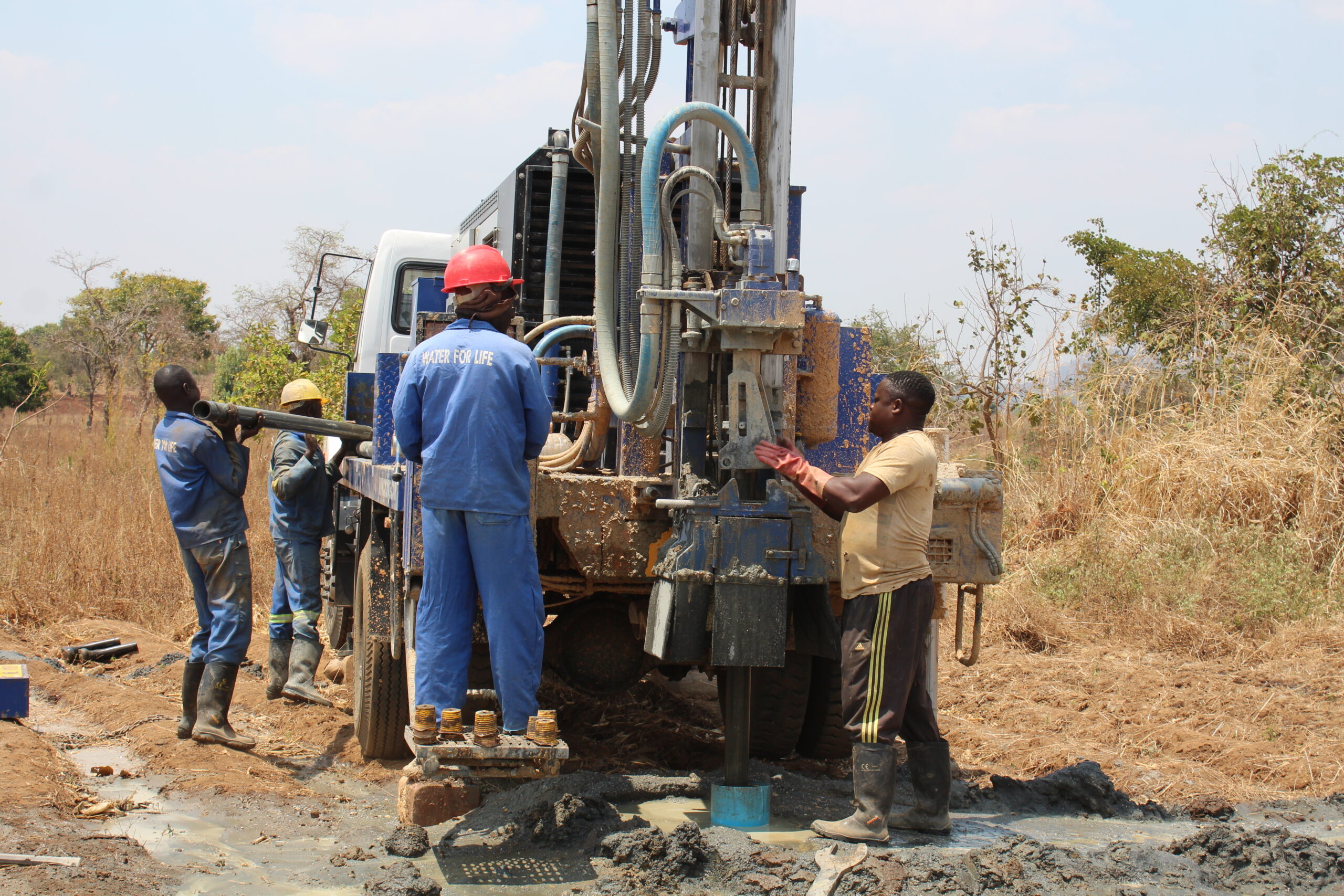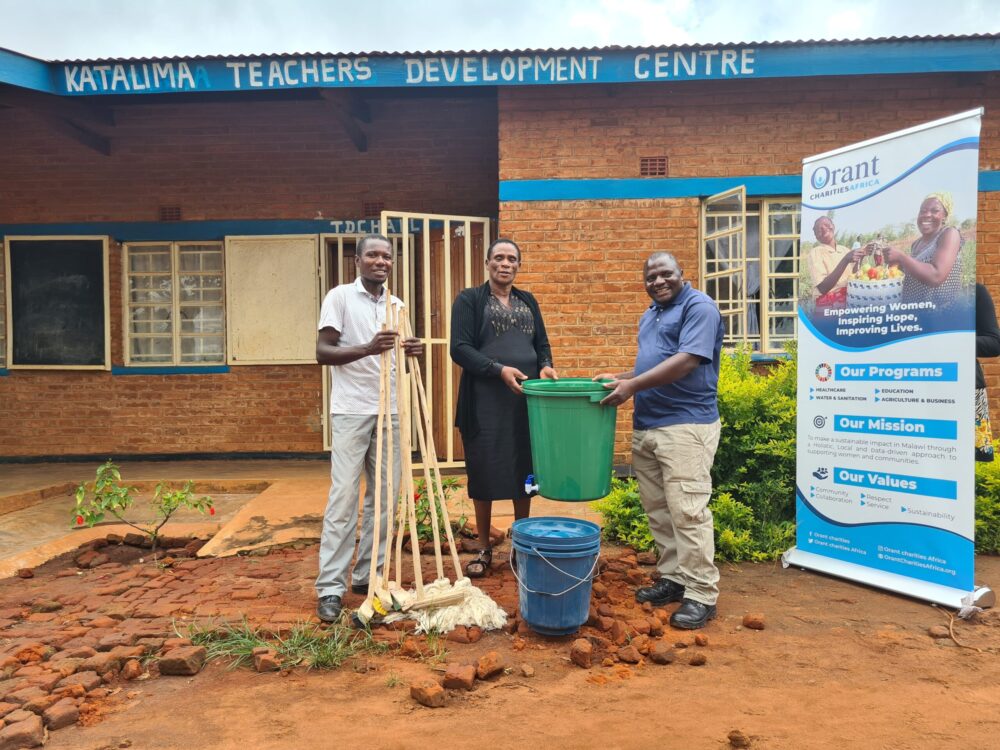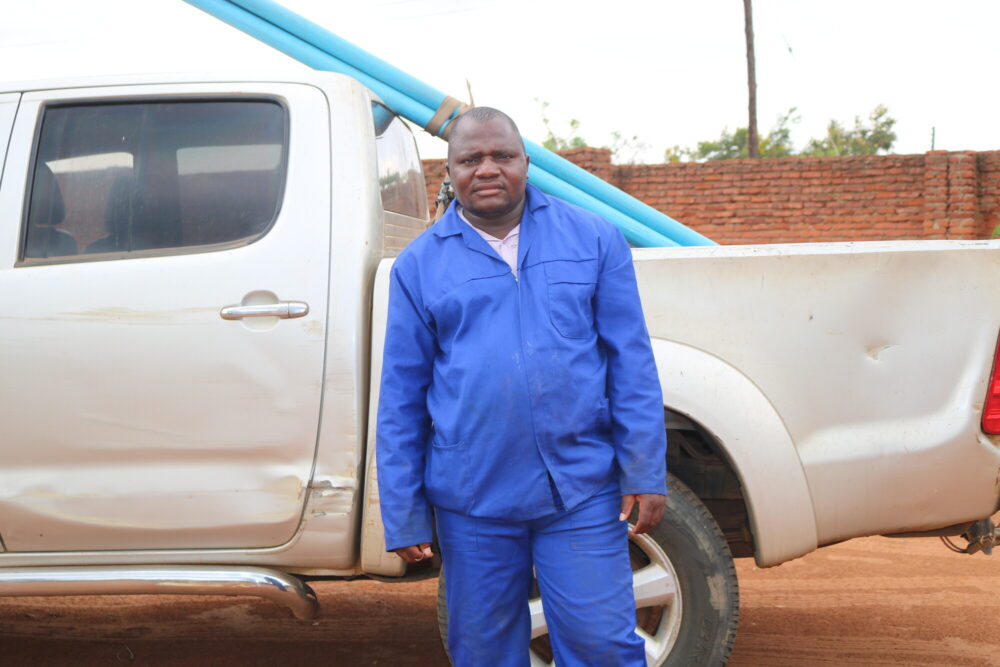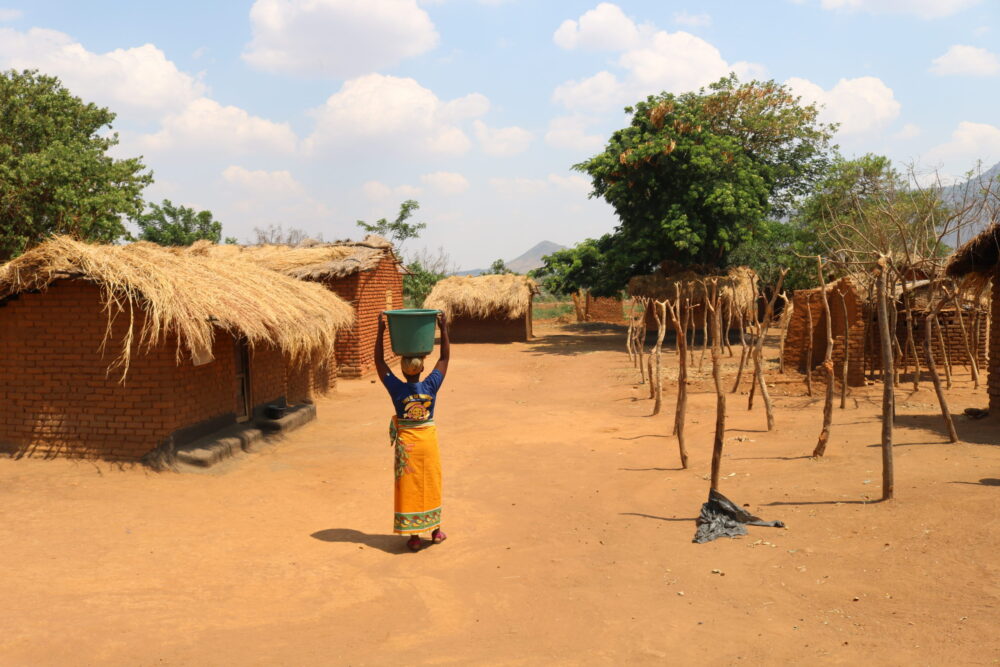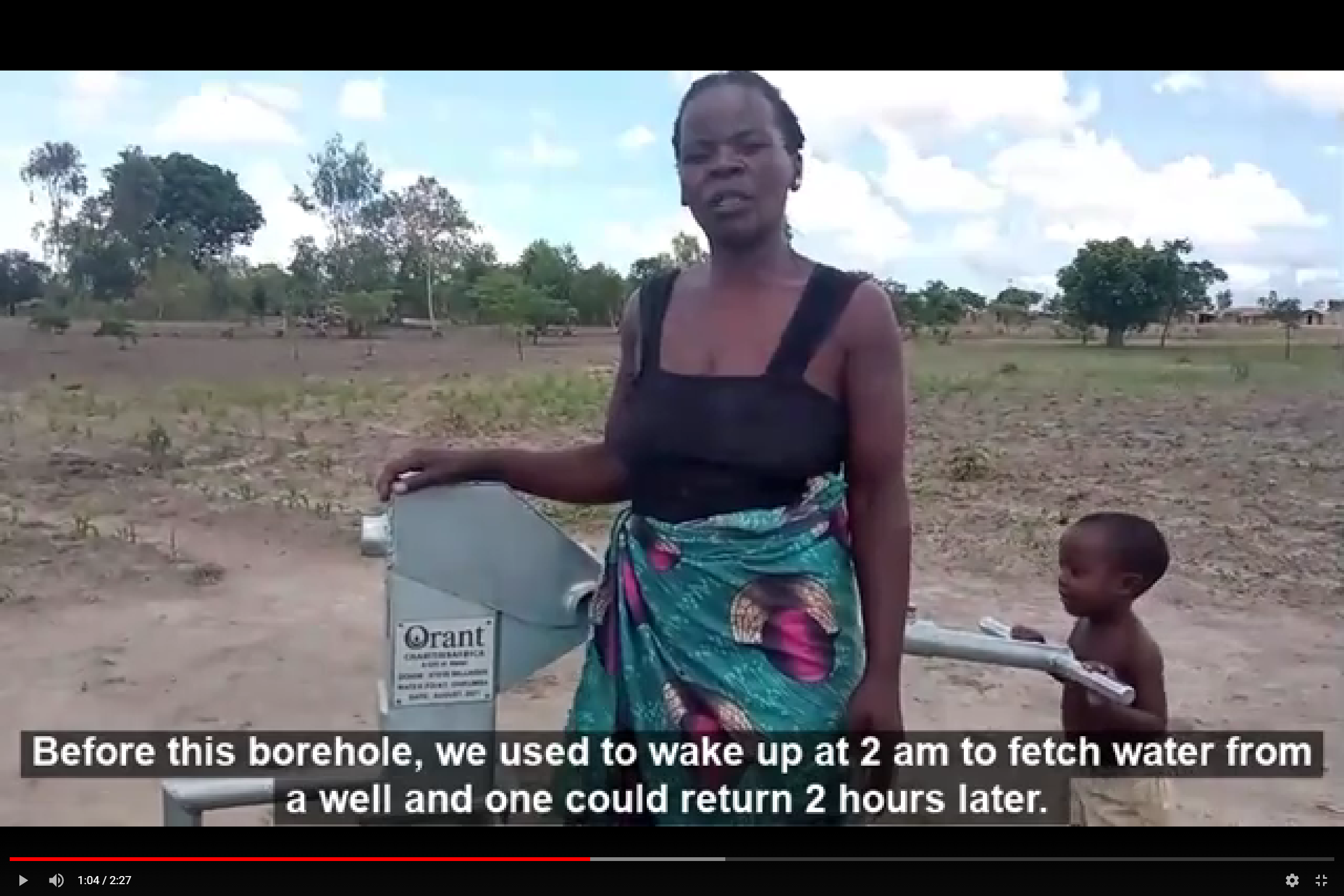Recently, through donations from our generous supporters, our WASH Program brought clean water to Kanono village, a community in our catchment area. Read our latest blog article to discover the profound impact this gift has had on people from Kanono village.
WASH in Malawi
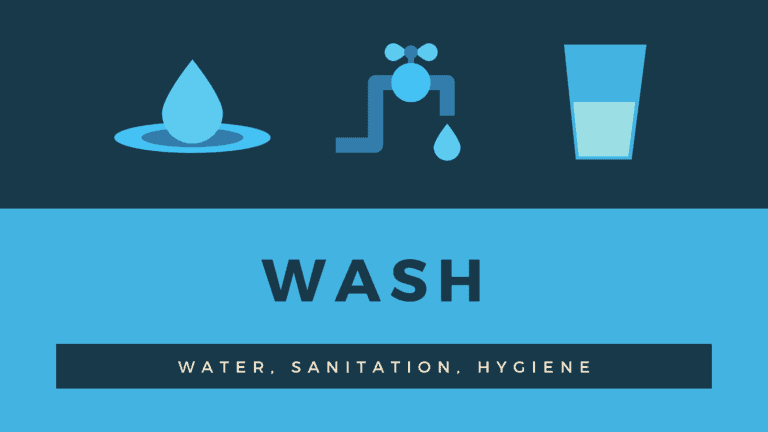
If you follow Orant’s media, you might see acronyms like WPC and WASH. But why are they important? What do they mean? Here we break down Malawi’s water lingo and answer other frequently asked questions.
What is WASH? Water, Sanitation and Hygiene.
The goal of WASH programming is to protect communities from waterborne illnesses. WASH promotes less open defecation and more access to clean water.
- Drilling wells
- Training communities in maintenance and water treatment
- Educating communities on health and sanitation
- Building latrines and menstrual hygiene facilities
What do we mean when we say “access to safe water?”
- A household’s round trip to collect water is less than 30 minutes
- The water is not contaminated
- Each person in a household has access to a minimum of 27 liters of water per day
What is a WPC? Water Point Committee.
Each water point has a WPC. WPCs regulate, use, and care for water points. They also collect and manage money to pay for parts and repairs.
What is a water point?
A way to access clean water. This can be a borehole, water tower, or stand pipe.
What is a borehole?
A deep hole in the ground. A borehole is narrower than a well, but serves the same purpose. We use them to collect water. Orant’s boreholes have handpumps, as shown in the photo below.
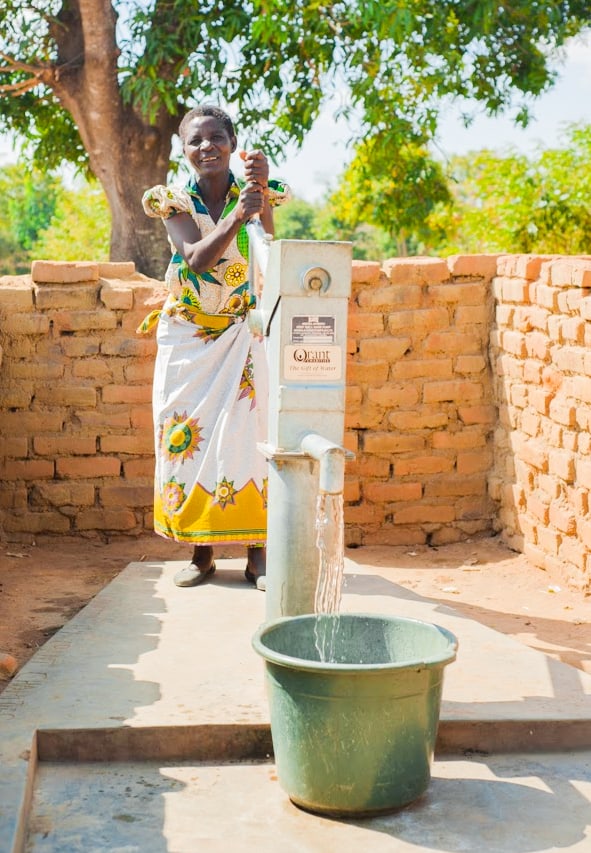
What is a standpipe?
A standpipe is another water point. Like a borehole, it’s used to collect water. But instead of hand pumping, users only have to turn on the faucet. We call standpipes communal taps.
- The latrine is private
- It’s safe from collapse
- The pit isn’t full
- The floor is waterproof
- The roof doesn’t leak
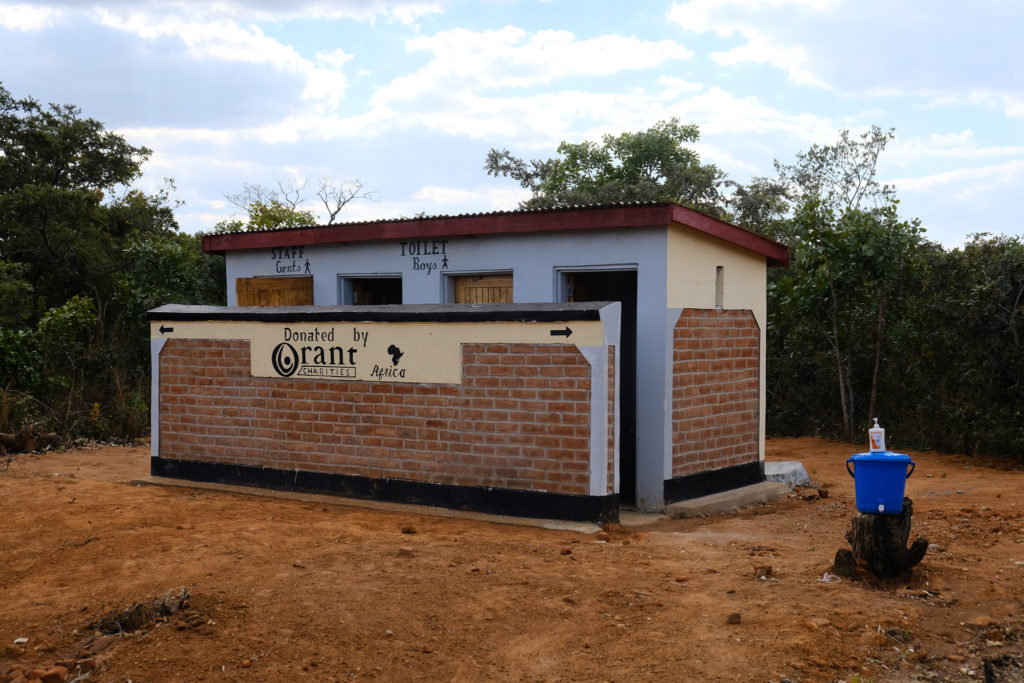
What is a sanitation campaign?
A WASH educational session. These campaigns happen in community spaces or in schools. Orant teaches communities about:
- Household water treatment
- The importance of latrines
- Hand washing with soap
- Prevention of waterborne diseases
Why is WASH important?
About 4 million people in Malawi don’t have access to basic water supply services. Almost all children suffer complications from water-borne diseases like diarrhea and cholera. Women and girls must walk far for safe water, then carry it back home. This affects their ability to pursue education and employment. Water is a fundamental need. We want to make it accessible.
The Orant Journal
Water Well Maintenance
At the heart of Orant’s programs and initiatives is sustainability, which is also one of our values. We believe in not only implementing programs or initiatives but also in creating long-lasting change that will continue to serve our community. In today's blog article, we talk about why we perform maintenance on water wells and how it contributes to the sustainability of our Water, Sanitation, and Hygiene (WASH) program.
Commemorating World Water Day 2024
Every year on the 22nd of March, the world commemorates World Water Day as a way of raising awareness of major water-related issues and to inspire action to tackle the water and sanitation crisis. This year’s World Water Day is themed “Water for Peace.” Read our blog article to learn more about what our WASH program is doing to promote peace and foster harmony.
Ensuring WASH Program Sustainability Through Water Point Committees
We are excited to have trained the Chika Water Point Committee (WPC) as a way of ensuring sustainability. Read our latest blog to learn more about WPCs and the role they play.
The Challenge of Accessing Clean Water in Rural Malawi
We are excited to tell you about the new borehole our WASH program has drilled in Chika Village, T/A Njombwa in Kasungu. Read our latest blog to learn more about how this new borehole will change the lives of people in Chika Village.
Improving Health and Hygiene for Students in Malawi
Our Water and Sanitation program continues to make a significant difference in the lives of students in rural Malawi. Read our latest blog to learn about how we support hygiene initiatives in primary schools in Dowa, Malawi.
A Water Problem is a Life Problem: Interview with Yona Maloto
Yona Maloto has been a Water Field Assistant for Orant's Water & Sanitation Program since 2020. We interviewed him to learn more about his work.
Water is an Issue of Gender
Clean water is a gendered issue in Malawi. Women and girls bear the brunt of the water burden. Malita Chimbalame tells her story.
Madzi ndi Moyo: Water is Life
Madzi ndi Moyo: water is life. Melina Maiko of Central Malawi reflects on the gift of water. A new water well impacts her family and village.
Making Clean Water Accessible in Malawi
Orant makes clean water accessible in rural Malawi by drilling and maintaining boreholes. In 2021, Orant drilled 15 new boreholes.
